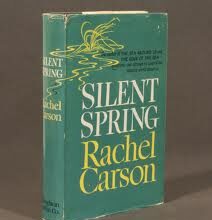Remember when people in the waiting room at a doctor’s office were all reading magazines? It was quiet as each person waited for their name to be called. Even if you went to a specialist’s office, no one dared say “I’m here for _____. What brings you here to see Dr. ____?” No one “shared” even if, just maybe, they had a very similar health concern to the person next to them. Makes sense, health is a private matter, right? Well many people I know don’t feel that way. They feel the benefits of connecting with other patients far outweigh the risks.
Remember when people in the waiting room at a doctor’s office were all reading magazines? It was quiet as each person waited for their name to be called. Even if you went to a specialist’s office, no one dared say “I’m here for _____. What brings you here to see Dr. ____?” No one “shared” even if, just maybe, they had a very similar health concern to the person next to them. Makes sense, health is a private matter, right? Well many people I know don’t feel that way. They feel the benefits of connecting with other patients far outweigh the risks.
 The other day I was in Atlanta where 30 or so patients attended an educational “summit” for people with a rare form of leukemia, chronic myelogenous leukemia or CML.While the people who came wanted to be informed and hear the latest from medical experts and an oncology social worker, they also wanted to meet others facing the same diagnosis. Particularly in rare conditions like this one, many patients have never met someone else with the diagnosis – and they very much want to make that connection. They want to hear the stories of others and see if they are like their own.
The other day I was in Atlanta where 30 or so patients attended an educational “summit” for people with a rare form of leukemia, chronic myelogenous leukemia or CML.While the people who came wanted to be informed and hear the latest from medical experts and an oncology social worker, they also wanted to meet others facing the same diagnosis. Particularly in rare conditions like this one, many patients have never met someone else with the diagnosis – and they very much want to make that connection. They want to hear the stories of others and see if they are like their own.
I found that to be true when I was diagnosed with chronic lymphocytic leukemia in 1996. Connecting through a listserv online was a great first step. Speaking to some of the community members on the phone was better. But meeting a few for coffee and lunch was best of all. One of those patients remains a friend now, 15 years later.
This Saturday I am the host for what’s becoming a big in-person event for patients and family members facing another cancer – multiple myeloma. Fortunately, more and more people are living longer and better with what has been a fatal disease. Years of survival are increasing and so is quality of life. While people take powerful medicines, they are traveling, working and enjoying time with family and friends. And the future looks brighter. I expected, given that this is not a common condition, that maybe 75 people would pre-register for this event. But, with a few days to go it now appears we’ll have approaching 200! Standing room only, perhaps. What’s fueling this? I am sure it’s that people want to meet people and make a human connection. Patient to Patient, Caregiver to Caregiver. It’s a powerful bond that can be formed and I am excited that Patient Power, and our long-time sponsor, the Seattle Cancer Care Alliance, are facilitating this.
A few thousand more people will benefit from the content we develop at this town meeting. There will be video interviews and more posted on our multiple myeloma pages. But I am betting if we have a town meeting in another city, patients who could attend online will want to come in-person. It’s the power of meeting another patient. It can be unforgettable.
If you can make our myeloma town meeting, it will be a pleasure to see you there. We’ll try to squeeze you in if you register. Otherwise we’ll see you at another in-person event somewhere sometime. There’s no substitute for shaking your hand!
Wishing you and your family the best of health!
Andrew








